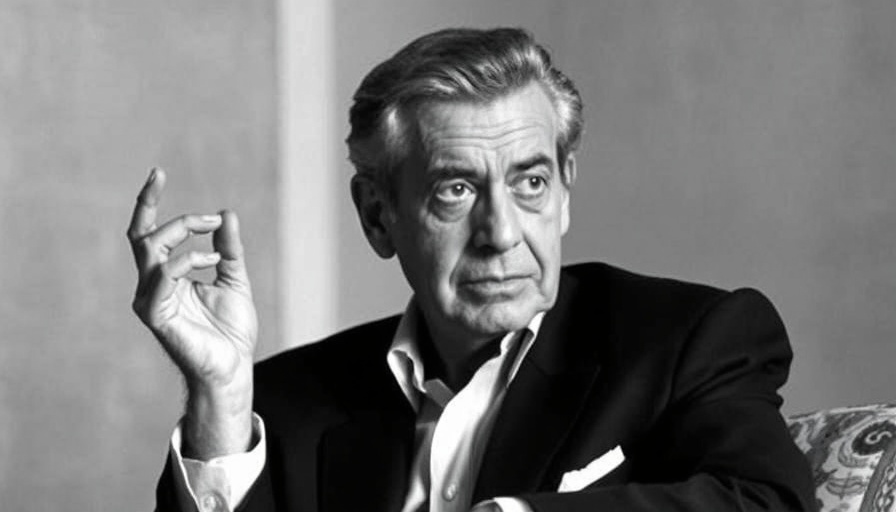
The Revolutionary Impact of Mario Vargas Llosa
Mario Vargas Llosa stands as a monumental figure in Spanish-language fiction, a revolutionary whose work has transcended national borders and redefined narrative form. His debut novel La Ciudad y los Perros (The Time of the Hero) not only shocked the literary establishment of Peru but also set the stage for the global 'Boom' in Latin American literature during the 1960s. This novel, which depicted the harsh realities of life and military authority in Lima, proved too provocative for the Peruvian authorities, earning a notorious legacy—but it also positioned Vargas Llosa as a bold voice in literature.
A Shift in Literary Paradigms
Prior to Vargas Llosa, Latin American literature often leaned on the specter of European influences, notably Emile Zola. Authors grappled with the complexities of protest literature, but Vargas Llosa turned to Gustave Flaubert, delving into character studies that explored the nuances of human experience. His work championed an 'objective' narrative style, allowing readers to engage with characters and themes authentically. This shift marked a decisive departure from didactic storytelling toward narratives brimming with moral ambiguity.
The Role of the 'Boom' in Cultural Exchange
The 'Boom' era not only heralded Vargas Llosa's rise but also introduced a wave of Latin American authors exploring existential and socio-political themes. Writers like Gabriel García Márquez and Julio Cortázar joined in this literary explosion, giving voice to a myriad of experiences and perspectives. As digital nomads, understanding this literary movement enriches our appreciation for culture, enabling deeper connections with the places we inhabit. Each of these authors crafted complex characters navigating the expansive terrains of love, exile, and degradation, mirroring the turbulent sociopolitical landscapes of their home countries.
Connecting Literature and Travel
For travel enthusiasts seeking to dive deeper into the culture of Latin American countries, Vargas Llosa’s work offers a unique lens. His novels, steeped in the realities of Peruvian life, paint vivid pictures of societal constructs, landscapes, and human interactions. Visiting places showcased in his novels unveils layers of history and culture, transforming travel into a profound learning experience.
Controversy: A Catalyst for Dialogue
Among the myriad responses to Vargas Llosa's work lies controversy—an expected companion of a thinker unafraid to challenge the status quo. Governments have censored books, terrified of their power to provoke thought and debate. In this climate of fear, Vargas Llosa's writings became instruments of resistance, sparking necessary dialogues about authority, identity, and freedom within the scope of contemporary society.
Lasting Lessons from Vargas Llosa's Legacy
Mario Vargas Llosa’s impact extends beyond the pages of his novels. His life and work serve as a testament to the power of literature to effect change. Readers and travelers alike can extract invaluable insights from his critiques of power structures and personal freedoms, inspiring action and reflective living. As we traverse new landscapes, the lessons embedded in his narratives encourage us to approach cultures with curiosity and respect.
Join the Conversation about Literature and Culture!
As digital nomads, we have the unique advantage of experiencing first-hand the cultures that fuel these compelling narratives. Take a moment to reflect on the literary giants who have influenced our understanding of the world, and consider how these connections enrich our travels. By diving deep into Vargas Llosa’s works, we challenge ourselves to explore and engage, turning every voyage into a narrative strength.
 Add Row
Add Row  Add
Add 




Write A Comment